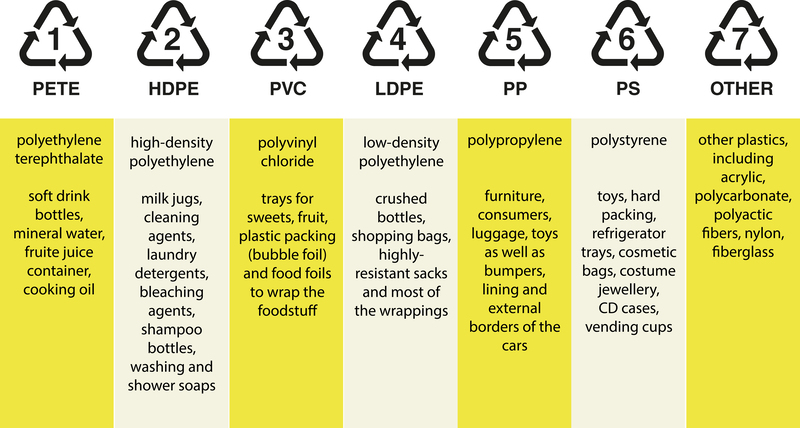Tips for Reducing Single-Use Plastics
Posted on 04/09/2025
In recent years, single-use plastics have garnered significant attention due to their detrimental impact on the environment. These plastics, used only once before being discarded, often end up in our oceans, causing severe harm to marine life and contributing to pollution. Reducing single-use plastics is vital for a sustainable future, and everyone can contribute by making mindful choices. This article will provide practical tips for reducing single-use plastics in daily life.
Avoid Plastic Bags
Plastic bags are one of the most common single-use plastics. They are often used for minutes but take hundreds of years to decompose. Here's how you can avoid them:
- Reusable Bags: Invest in high-quality reusable shopping bags. Keep them in your car or handbag so you always have them when needed.
- Produce Bags: Replace plastic produce bags with reusable mesh or cloth bags. Many stores now offer these alternatives.
- Saying No: Simply refuse plastic bags when offered, even for small purchases.
These small steps can significantly reduce the number of plastic bags entering the waste stream.

Switch to Reusable Bottles and Cups
Plastic bottles and cups are major contributors to plastic pollution. Making the switch to reusable options can make a huge difference. Consider the following tips:
- Reusable Water Bottles: Invest in a high-quality stainless steel or glass water bottle. These are not only environmentally friendly but also safer for your health.
- Coffee Cups: Bring your own reusable coffee cup when visiting cafes. Many establishments offer discounts to customers who bring their own cups.
- Mason Jars: These versatile jars can be used for beverages, storing food, and even as lunch containers.
By making these changes, you'll not only reduce plastic waste but also enjoy better-tasting beverages, as stainless steel and glass don't affect the flavor like plastic can.
Reduce Plastic Packaging
Plastic packaging is ubiquitous in supermarkets. However, you can take steps to minimize its use:
- Bulk Buying: Purchase items in bulk rather than individually packaged goods. Bring your own containers to fill up with items like grains, nuts, and spices.
- Farmers Markets: Shop at farmers markets where produce is often sold without packaging. Bring your own bags and containers to carry your purchases.
- Make Your Own: Prepare homemade versions of commonly packaged foods like snacks, sauces, and bread. This reduces packaging waste and can be healthier and more cost-effective.
These efforts can significantly decrease the amount of plastic packaging in your household.
Choose Plastic-Free Personal Care Products
Many personal care products come in plastic containers or contain microplastics. To reduce your plastic footprint in this area, try the following tips:
- Solid Shampoo and Soap Bars: These bars come with minimal or no packaging and last longer than liquid versions.
- Refill Stations: Use refill stations for products like shampoo, conditioner, and lotions. Bring your own containers to fill up.
- Natural Alternatives: Consider switching to natural products that come in biodegradable or recyclable packaging.
These choices help to minimize the use of plastic in your daily hygienic routine, benefiting both you and the environment.
Reduce Plastic in the Kitchen
The kitchen is a hotspot for single-use plastics, but there are numerous ways to reduce their presence:
- Reusable Containers: Use glass or stainless steel containers for food storage instead of plastic bags and containers.
- Beeswax Wraps: Replace plastic wrap with beeswax wraps for covering food and containers. They are reusable and biodegradable.
- Metal Straws: Swap out plastic straws for reusable metal or silicone straws. Keep a set in your bag for use on the go.
- Cloth Napkins: Replace paper napkins with cloth ones. They are more durable and reduce waste.
Adopting these practices can significantly reduce the amount of plastic waste generated from your kitchen activities.

Make Eco-Friendly Lifestyle Choices
Finally, approaching life with an eco-friendly mindset will naturally lead to reduced plastic use. Here are some ideas:
- Conscious Consumption: Be mindful of the products you purchase. Opt for items with minimal or no plastic packaging.
- Support Sustainable Brands: Choose products from companies committed to sustainability and reducing their environmental impact.
- DIY Projects: Engage in do-it-yourself projects that help you create reusable items like tote bags, cleaning products, and more.
- Community Efforts: Participate in or organize local clean-up events. Educate your community on the importance of reducing single-use plastics.
These lifestyle changes not only contribute to reducing plastic waste but also foster a deeper connection with the environment.
Conclusion
Reducing single-use plastics doesn't require drastic lifestyle changes; rather, it involves making conscious, sustainable choices. By avoiding plastic bags, switching to reusable bottles and cups, reducing plastic packaging, choosing plastic-free personal care products, minimizing plastic use in the kitchen, and adopting an eco-friendly mindset, you can play a significant role in mitigating plastic pollution.
The journey toward a plastic-free life begins with a single step. Start small and gradually incorporate these tips into your daily routine. Collectively, our efforts can create a substantial positive impact on the planet, preserving it for future generations.
Latest Posts
DIY Paper Recycling at Home in 6 Steps
Advance Your Recycling Approach
Plant-Based Plastics: Future Innovations






